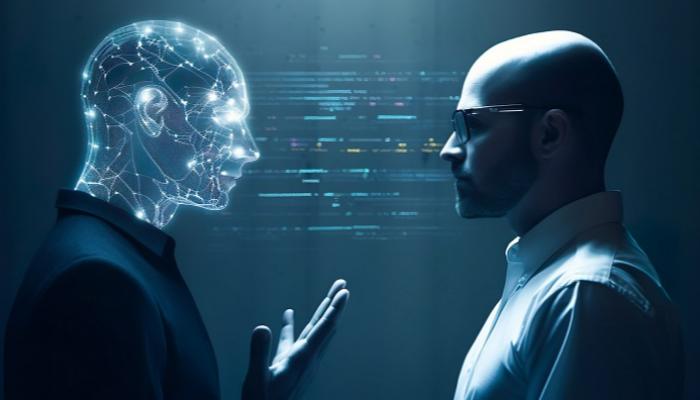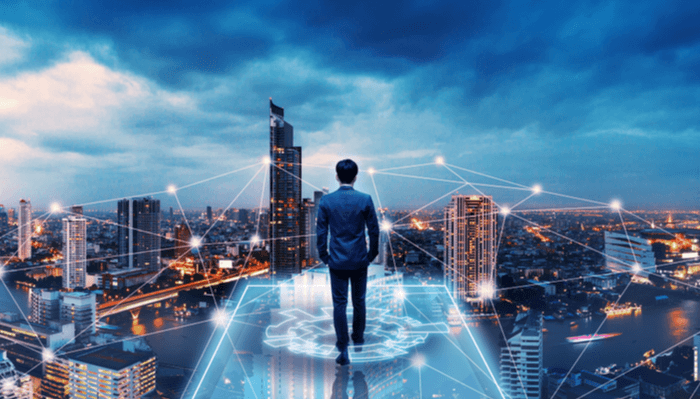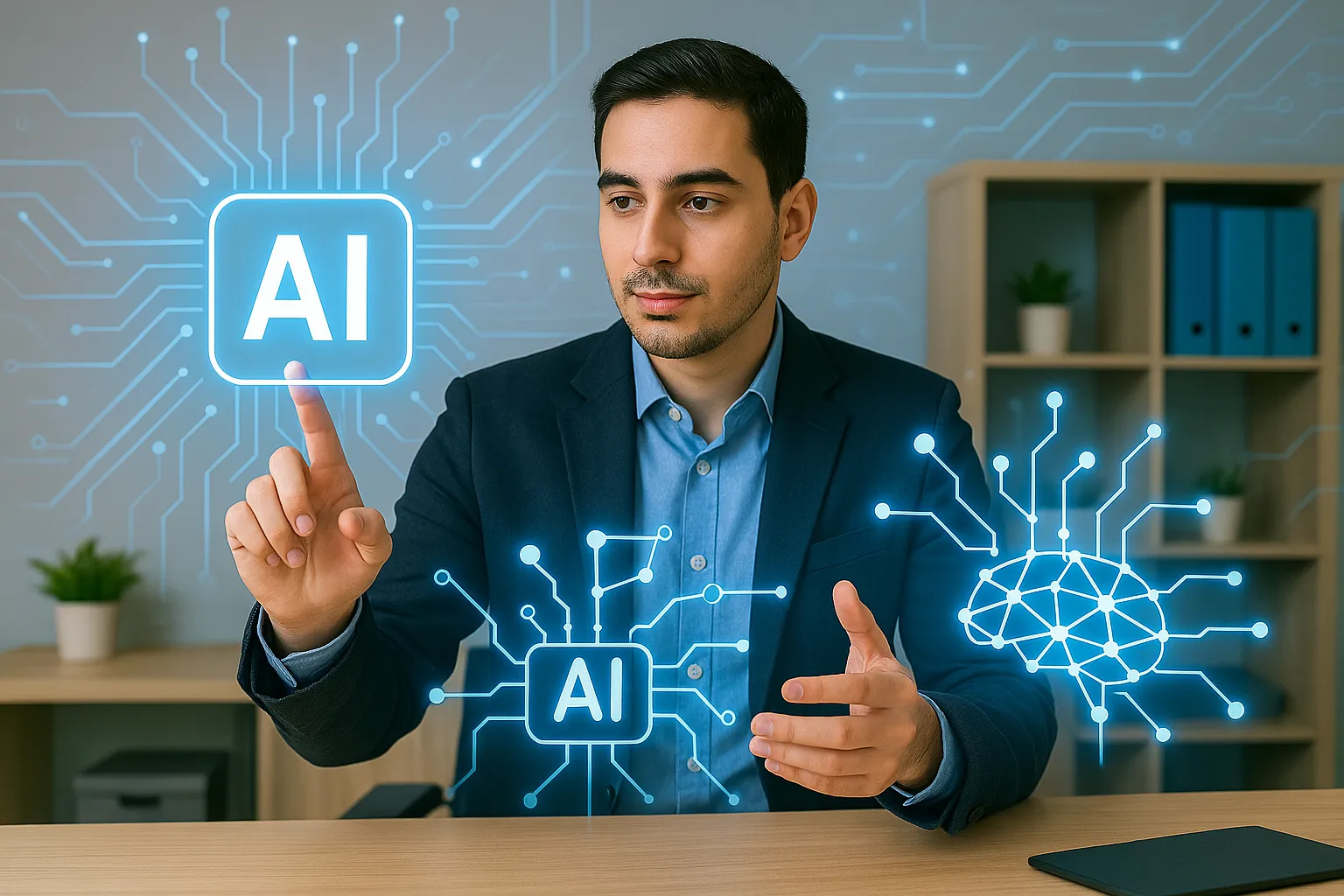Artificial Intelligence and the Future of Humans: Opportunities, Challenges, and Impact
Artificial Intelligence (AI) is rapidly transforming the way we live, work, and interact. From automating routine tasks to enabling groundbreaking scientific discoveries, AI holds the promise of a more efficient and innovative future. However, this technological revolution also brings with it complex ethical, social, and economic questions. In this article, we explore the foundations of AI, its potential benefits and risks, and how humanity can responsibly navigate the road ahead.
Artificial Intelligence and the Future of Humans is changing our international in no time by means of permitting machines to analyze, thoughts and clear up problems AI automates duties, improves selection-making and additionally drives innovation throughout industries, this development additionally augurs nicely for an exciting future of potential, and synthetic intelligence can deal with complex demanding situations consisting of climate exchange and paintings to diagnose illnesses, however, its impact on humanity is a double-edged sword, functional displacement and moral concerns surrounding bias and manipulate are crucial issues to be addressed, as we navigate these new boundaries, cooperation among humans and synthetic intelligence can be key to unlocking its complete capability and also shaping a useful future for all.
Background and Significance of Artificial Intelligence and the Future of Humans
Artificial Intelligence and the Future of Humans is not a recent invention, and this is in which its roots span a long time, as fueled by way of the dream of machines that mimic human intelligence, early Artificial Intelligence and the Future of Humans targeted on unique responsibilities, that's like playing chess or fixing sports problems, and these days, synthetic intelligence is tons broader, and consists of algorithms that could learn, adapt or even create creative content.
This improvement is of awesome significance and profound importance to humanity, and AI is preparing to revolutionize many areas:
- Efficiency and productivity: AI automates repetitive responsibilities, operating to unfastened human beings for more complex work, as well as imagining that self-riding trucks or robots take care of risky manufacturing capabilities.
- Scientific discovery: Artificial Intelligence and the Future of Humans can examine large statistics sets, and paintings to boost up medical breakthroughs in areas consisting of medicinal drug and materials technological know-how.
- Improved decision-making: AI algorithms can examine complex facts, and also help in areas which include monetary markets or chance assessment, main to greater knowledgeable choices.
.jpg)
However, the future with AI isn't without challenges:
- Job displacement: Automation can lead to sizable task losses, necessitating the retraining of the personnel and social protection nets.
- Ethical concerns: AI algorithms can perpetuate biases within the information they have got educated, and making sure fairness and transparency in AI development is essential.
- AI control: As AI turns into extra complicated, questions emerge about who controls those effective systems and also their capability effect on human autonomy.
Fundamentals of Artificial Intelligence and the Future of Humans
Artificial Intelligence and the Future of Humans isn't magic it's a complex field built upon well-defined fundamentals, here's a breakdown of the key concepts:
Machine Learning
This is the engine that drives much of modern AI, machine learning algorithms learn from data, allowing them to improve their performance on a specific task without explicit programming, there are different types of machine learning, such as:
- Supervised Learning: The AI is trained on labeled data, where the desired output is already known, for example, an AI for image recognition would be trained on pictures labeled "cat" or "dog."
- Unsupervised Learning: The AI identifies patterns in unlabeled data, think of recommending movies based on your past viewing history.

Deep Learning
A subfield of machine learning inspired by the structure and function of the human brain, deep learning uses artificial neural networks, which are interconnected layers of algorithms that process information in a similar way to how neurons work, these networks excel at tasks like image and speech recognition.
Natural Language Processing (NLP)
This field allows AI to understand and generate human language, NLP is used in applications like machine translation, chatbots, and sentiment analysis.
Knowledge Representation and Reasoning
AI needs to represent and reason about the world around it, this involves techniques for storing information like facts and rules, and then using them to draw conclusions and solve problems.
Robotics
This field deals with the design, construction, and operation of robots, AI plays a crucial role in robotics, allowing robots to perceive their environment, make decisions, and take actions.
Potential Societal Impacts of AI
Artificial Intelligence and the Future of Humans promises a future brimming with exciting possibilities, but it also presents significant challenges that society must grapple with, here's a closer look at the potential societal impacts of AI:
Positive Impacts:
- Efficiency and Productivity: AI automates repetitive tasks, freeing up human labor for more creative and strategic endeavors, imagine AI-powered logistics streamlining supply chains or robots handling dangerous construction tasks.
- Enhanced Decision-Making: AI algorithms can analyze vast amounts of data, leading to more informed decisions in various fields, this can be seen in applications like credit risk assessment or personalized healthcare recommendations.
- Scientific Advancement: AI can accelerate scientific discovery by analyzing complex scientific data and identifying patterns that might elude human researchers, this can pave the way for breakthroughs in fields like medicine and materials science.
- Improved Quality of Life: AI has the potential to improve our daily lives in numerous ways, ai-powered personalized learning can transform education, while advancements in AI assistants can make daily tasks more manageable.

Negative Impacts:
- Job displacement: Automation due to AI could lead to widespread job losses, particularly in sectors with repetitive tasks, this necessitates proactive measures like job retraining programs and social safety nets.
- Ethical Concerns: AI algorithms can perpetuate biases present in the data they're trained on, leading to discriminatory outcomes in areas like hiring or loan approvals, ensuring fairness and transparency in AI development is crucial.
- Privacy Concerns: As AI becomes more integrated with our lives, concerns about data privacy and security rise.
- Control and Autonomy: As AI becomes more sophisticated, the question of who controls these powerful systems takes center stage, we need to ensure AI serves humanity, not the other way around.
The Road Ahead:
The impact of AI on society hinges on responsible development and fostering human-AI collaboration, by harnessing AI's power for good while mitigating its risks, we can build a future where AI serves as a powerful tool for progress, tackling humanity's greatest challenges and improving the lives of all.
Artificial Intelligence and the Future of Humans’s potential to revolutionize our world is undeniable, the key lies in navigating its development responsibly, by embracing collaboration and tackling ethical concerns, we can forge a future where AI empowers humanity to reach new heights.
The rise of Artificial Intelligence presents one of the most significant turning points in human history. While the opportunities are immense — from medical breakthroughs to smarter infrastructure — the challenges are equally critical. Issues like job displacement, data privacy, and algorithmic bias demand thoughtful solutions and proactive governance. By fostering collaboration between humans and machines, and prioritizing ethics and transparency, we can ensure that AI becomes a force for good — empowering humanity and shaping a better, more inclusive future.



